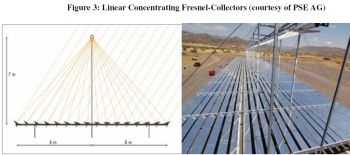
The fishing industry is a cornerstone of Morocco’s settlement policy for Western Sahara. Tens of thousands of Moroccans are employed in the sector in Western Sahara. The influx of Moroccan settlers directly contributes to complicate the settlement of the conflict. It is also in violation of international law, since the Saharawi people have expressly urged Morocco to stop its fisheries industry there.
Yet, a solar project called "Greenhouse Gas Emission in the Fish Meal Industry in Morocco - Central Steam Production Plant" is currently under validation by the UN’s climate initiative Clean Development Mechanism (CDM), just as the case of Nareva for the wind power project at Foum el Oued outside el Aauin, as reported by WSRW last week.
One argument in the Project Design Document illustrates how off-course that the CDM currently is in relation to the rest of the UN.
 “It is nearly impossible to find a foreign investor for that kind of project, especially in this area of Morocco (keyword: Western Sahara-conflict)”, the document notes, which underlines that the project “received the blessing” of the king of Morocco - who’s predecessor occupied the territory in 1975.
“It is nearly impossible to find a foreign investor for that kind of project, especially in this area of Morocco (keyword: Western Sahara-conflict)”, the document notes, which underlines that the project “received the blessing” of the king of Morocco - who’s predecessor occupied the territory in 1975.Western Sahara Resource Watch calls on CDM to stop the funding, exactly of the same reasons why other investors have refuted establishing in the territory.
“Numerous private investors refuse to invest in Western Sahara, precisely to prevent undermining the UN’s efforts to solve the conflict, and in respect of the legal opinion of the UN. How ironic is it then, that the Clean Development Mechanism considers supporting it because private investors refuse due to consideration of the UN legal office and international law?”, stated Sara Eyckmans of Western Sahara Resource Watch.
If the project becomes validated, it will indirectly receive funding through the UN Framework Convention on Climate Change, CDM/UNFCCC.
The UN has stated that the exploiting of natural resources in Western Sahara is in violation of international law. The former UN legal counsel, Hans Corell who wrote a legal opinion on the topic, has on a number of occasions highly criticised the international fisheries industry in the territory. In his letter to the Security Council, he underlined how the similar case of the Non-Self-Governing territory of Namibia, under South African occupation, had been placed under UN sanctions.
No reference is made in any point through the document as to how the project is in accordance with “the wishes and interests of the people of Western Sahara”, as the UN legal office requires. There are no references to Saharawi groups, nor of Saharawi people’s representative Frente Polisario, which is in UN talks with Morocco – exactly over the issue of natural resource management.
“How can the UN with credibility facilitate peace talks in Western Sahara – and particularly over natural resources management – as long as a UN institution illegally supports the Moroccan plunder with the blessing of the Moroccan king? Would the CDM support energy projects in other illegally occupied parts of the world also?” asks Eyckmans of WSRW. The last Security Council resolution of Western Sahara specifically makes reference to the natural resources talks between the parties.
Instead of underlining consultation with the Saharawis, the project document merely states that the Moroccan king has “blessed” the project, and that there have been “personal discussions” between the project developers and different national and local authorities and business interests.”
Read the Project Design Document here, outlining the fish meal project.
The project is expected to benefit 8 fish meal factories in Western Sahara: Copelit, Delta Ocean, KB Fish, Laayoune Elevage, Laayoune Proteine, Sepomer, Somatraps, Sotragel. The contact person, Mr. Sentissi al Idrissi, is the president of the association of Moroccan fish meal and fish oil producers, ANAFAP.
The certification company currently validating the project is German company TÜV SÜD Industrie Service GmbH.
See also this earlier version of the Project Design Document, dated a few months before the one already mentioned. The strange Western Sahara reference above is here stated somewhat differently “It is nearly impossible to find a foreign investor for that kind of project in Morocco”.
Morocco allocates land in occupied Western Sahara to green hydrogen investors
Morocco’s ambitions to become a global green hydrogen powerhouse are accelerating. Yet, Rabat is allocating land in a territory it does not legally own.
US eyes minerals in occupied Western Sahara
Seeking to position itself as a key supplier of strategic minerals for Western powers, Morocco has signed a new agreement with the United States that covers Western Sahara’s waters and the critical minerals harboured there.
TAQA-Moeve obtains land in occupied Western Sahara
Morocco’s push for green hydrogen has taken a decisive step forward - on territory it does not legally own.
EU-Morocco Statement: autonomy without self-determination, law without lawfulness
A joint statement that came out of last week’s EU-Morocco Association Council asks readers to believe in a fiction: that an undefined autonomy plan imposed by an occupying power can satisfy the right to self-determination, and that respect for international law can coexist with the systematic ignoring of the EU’s own highest court.



